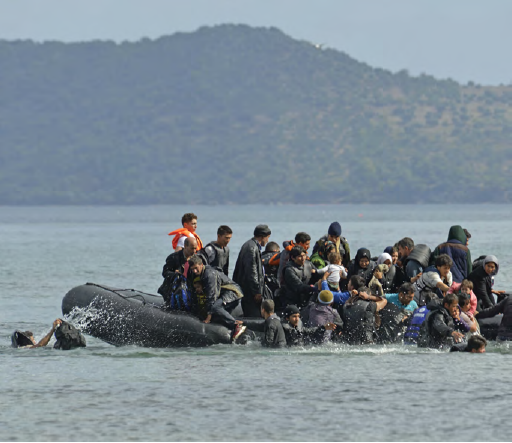
Europol data confirms that 90% of recent irregular migrants had their journeys facilitated by a criminal organisation. Thus, tackling this multibillion euro trade is an essential part of the EU’s response to the migrant crisis. Migrant smugglers exploited traditional methods of smuggling over sea, land and air, as well as increasingly engaging in new types of activities, such as the use of social media to recruit migrants, and more sophisticated identity fraud activities. Analysis of data also revealed links between migrant smuggling and other crime areas, such as trafficking human beings and drugs. EU law enforcement agencies exploited new countermeasures to target the criminal networks, with solid support from Europol.
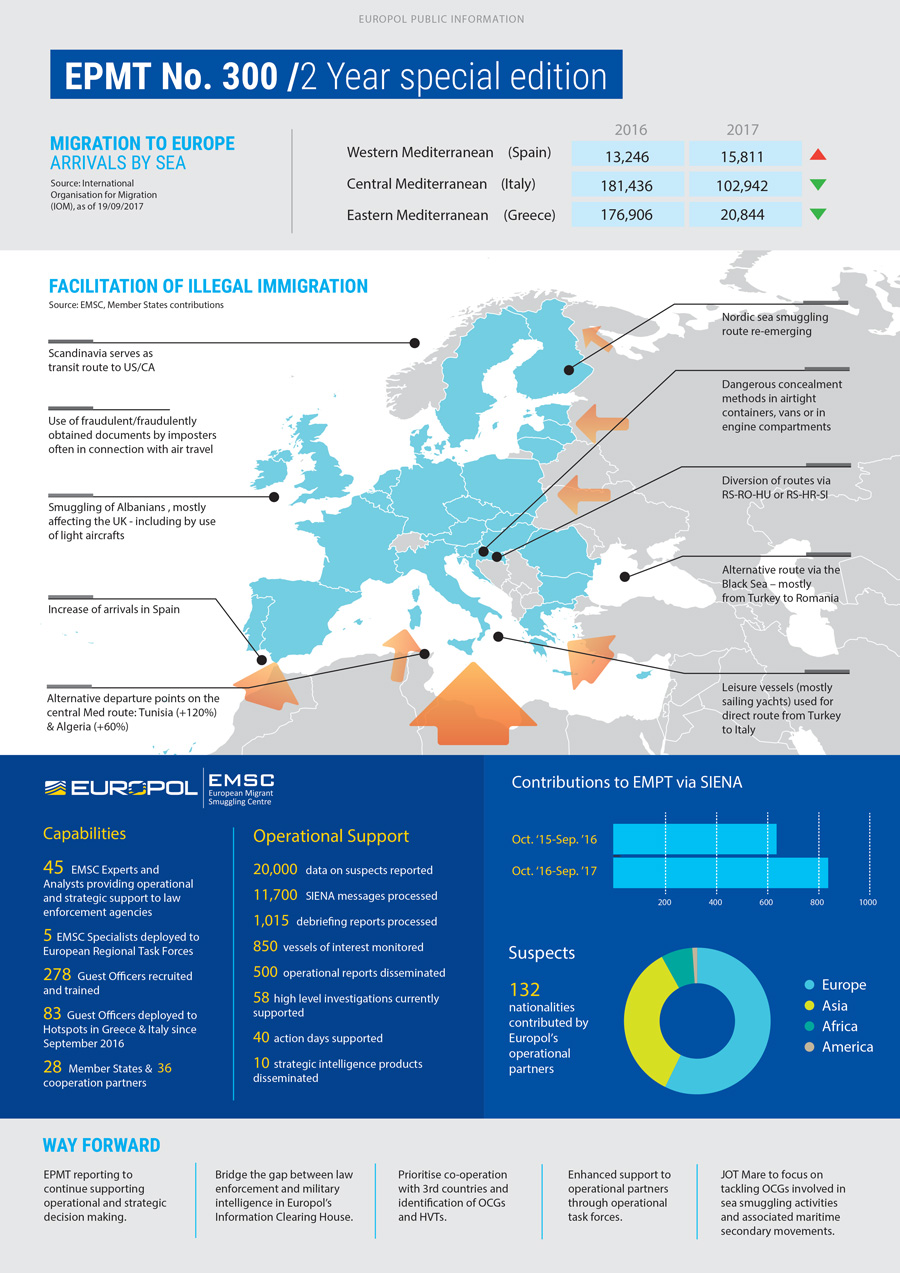
The European Migrant Smuggling Centre (EMSC) was launched at Europol in February 2016 in response to the unprecedented numbers of irregular migrants arriving in the EU since 2014. The goal of the EMSC is to help target and dismantle the complex and sophisticated criminal networks involved in migrant smuggling. It provides a platform to help Member States improve their exchange of information and operational coordination to fight migrant smuggling. It also facilitates increased cooperation between Member States themselves, and also international organisations, national stakeholders and other European agencies whose aim is to combat people smuggling via the Mediterranean and their subsequent secondary movements to destination countries. The centre encompasses the Joint Operational Team Mare (JOT Mare), created in March 2015 to tackle the organised criminal groups facilitating migrants’ journeys by boat across the Mediterranean Sea to the European Union.
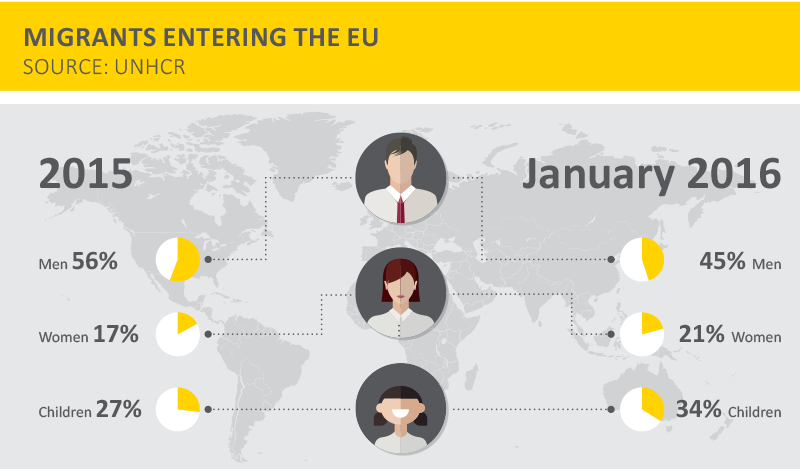
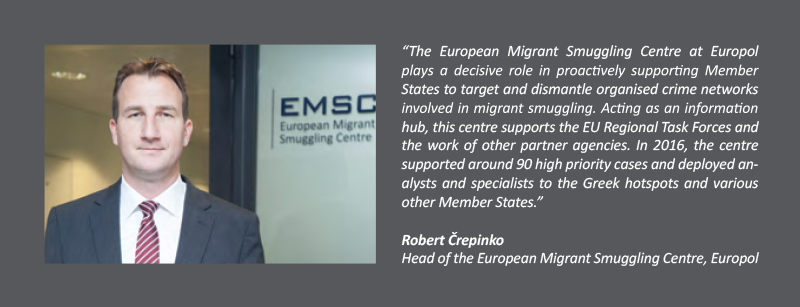
In the field, new mobile teams of Europol specialists and analysts have been working closely together with national law enforcement officers, providing direct analytical, specialist and forensic support. In anti-smuggling actions, where people are in danger, fast information exchange and analysis is crucial. Deployment of the mobile teams has led to new international investigations and increased cooperation. Europol’s presence in the EU Regional Task Forces in Italy and Greece ensured coordination of activities in the field in front line Member States, working not only with the national authorities but also with partner agencies.
More investigations related to facilitated illegal immigration and money laundering were also conducted in Austria, Bulgaria and Germany. 27 countries have contributed to this investigation.
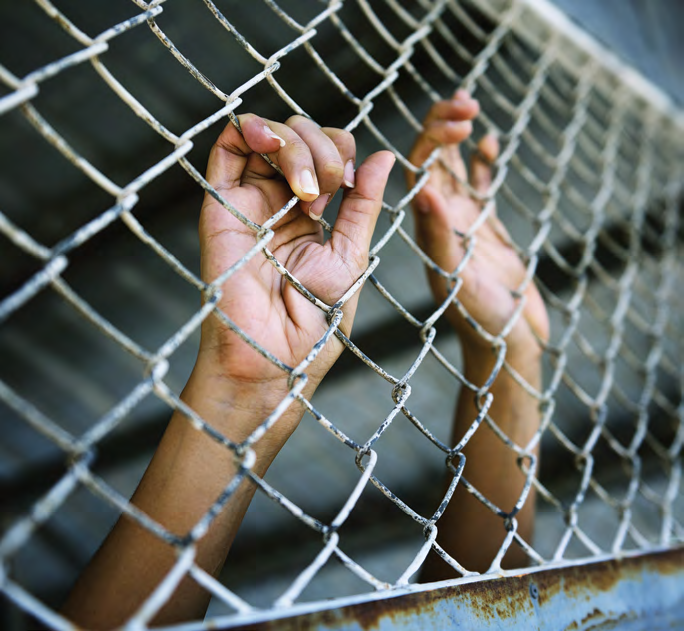
Human trafficking is a form of modern day slavery and one of the most lucrative organised crime activities in the world. Traffickers operate across both legitimate and illicit economies and criminal proceeds are mainly sent by traffickers from the countries of exploitation to their countries of origin, electronically via money business services or in cash via money mules.
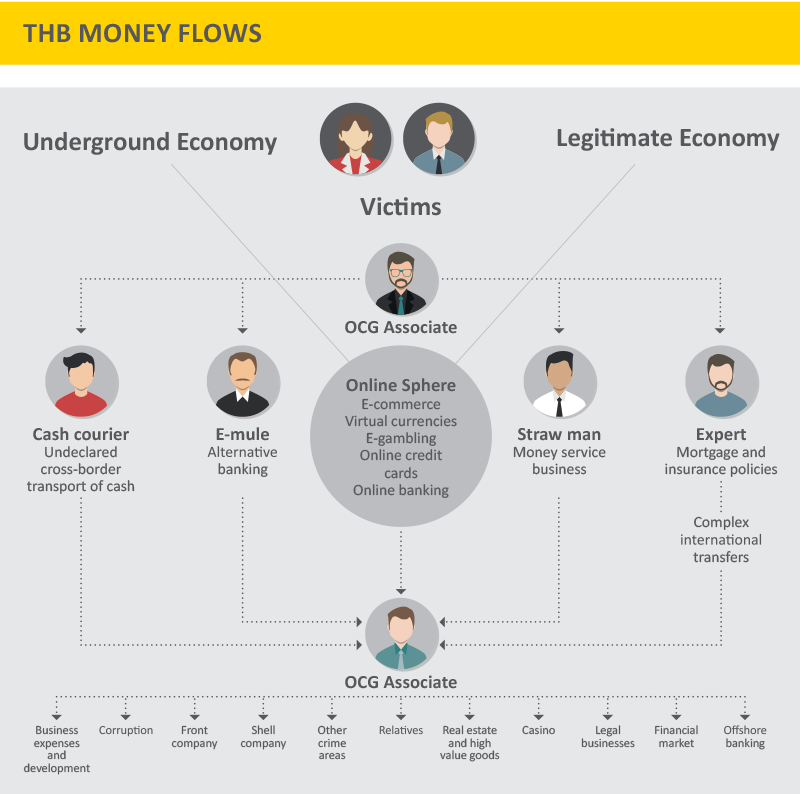

Operation Disney